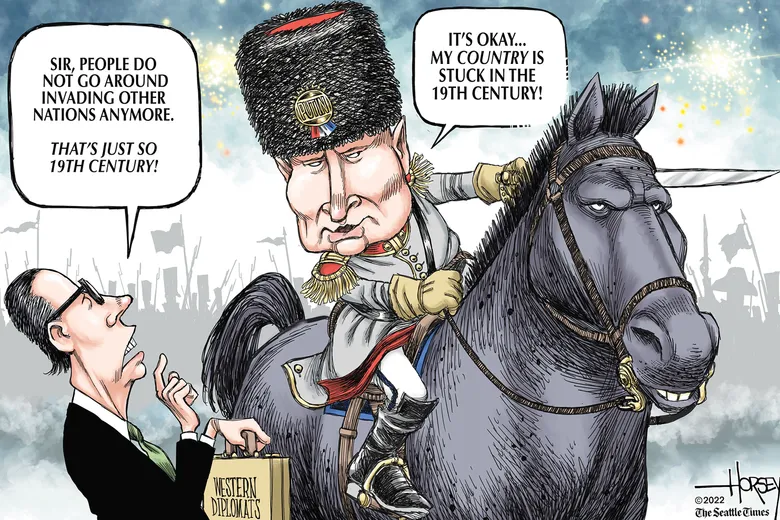Masha Gessen describes Russia as a post-Communist Mafia State

Masha Gessen won the European book prize at the Leipzig Book Fair, by Kerstin Holm, Copyright, Franfurter Allgemeine Zeitung, 22/3/2019. Translation - Hibernanscribe. Masha Gessen on Russia: The master of evil from Moscow.
She won the National Book Award: Masha Gessen describes Russia as a post-communist mafia state. Now she is honoured with the Leipzig Book Prize for European Understanding. Masha Gessen, the passionate fighter for democracy, education, human and especially gay rights, has emigrated twice from her first home country, Russia. Born into a Jewish Moscow family in 1967, she moved to the United States as a child with her parents in 1981 to escape Soviet anti-semitism, and went to Japan in 1991 as an American journalist. Russia became democratic under Boris Yeltsin. Russian media supported Masha Gessen, who owns a Russian and an American passport, she embraced the hopes of her westward departure; she found her life partner in Russia and adopted a Russian boy whose parents had died of AIDS. At the same time she documented in her books the reputational loss of the intelligentsia, paid homage to the feminist political "Pussy Riot", but also wrote a psychopolitical portrait of Vladimir Putin as a man driven by power, a greedy man who trusts only in violence and malice. The stealing of Yukos from Khodorkhovsky was corruption at the highest level which was televised live, confirming the Putin administration is a kleptocracy. Putin, as CEO of Yukos is allegedly the richest individual ever in history. Putin’s kleptocracy is destined to collapse after decades of creeping stagnation.
In 1839, French nobleman Marquis de Custine described Russia: the political state of Russia is a country in which the government says what it pleases, because it alone has the right to speak...André Gide in 1936 described: Stalin's effigy is everywhere, his name is on every tongue...Is it adoration, love or fear? There is nothing like a stay in the USSR to help us appreciate the inappreciable liberty of thought still enjoyed in France.
Shortly after her book's release in 2013, she and her family relocated to New York City, fearing that her adopted son would be taken away as a result of new laws against homosexual propaganda and adoptions by Americans. In her latest book "The Future is History" Gessen explains how it came about that the achievements of the nineties, the economic liberalization, the re-emergence of long-banned human scientific disciplines in Russia were withdrawn. This lucid, strongly worded text, which interweaves family dramas, science journalism and political reportage, for which the author was awarded the Leipzig Book Prize for European Understanding. Russia is regressing into its own past, glorifying this past and destroying future hopes. This is shown by the example of four people born in the eighties and with whom they conducted intensive interviews. Two come from privileged families. But like Gessens' colleague Svetlana Alexievich, everyone is referred to by their first names only to emphasize their subjectivity.
Masha, a member of Pussy Riot
There is Serjoscha (Sergei's cousin), the grandson of the intellectual perestroika strategist Alexander Yakovlev, who was shocked by the return of the cult of leadership under Putin before his death in 2005. There is Shanna, the daughter of Boris Nemtsov, murdered in 2015 behind a snow plough by Putin. An opponent and former reform governor of Nizhny Novgorod, who was for a while the crown prince of Boris Yeltsin. Muscovite Masha relates her experiences in the "gray" financial economy by the protest punkers of Pussy Riot and various opposition leaders. In the comparatively safe time under Dmitry Medvedev, the homosexual Lyosha manages achieve a university career as a political scientist specializing in sexual minorities. The example of the psychoanalyst Marina Arutjunjan and the sociologist Lew Gudkow shows how the psychology and sociology suppressed by the Soviet power are re-established, not least with the support of Western colleagues. However, the reader also follows how the forward thinker of Russian reaction, Alexander Dugin, who taught at the Moscow State University until 2014, from the ideas of Carl Schmitt and Martin Heidegger forges his Eurasian-imperial anti-individualist ideology. As with many journalists who switched from the democratic to the nationalist camp, Dugin, a long-time philosophical advocate endured personal trauma in shaping his convictions. Gessen describes how his childhood sweetheart founded the first homosexual union of the Soviet Union - after which he had become a fervent nationalist.
FAZ Plus Artikel: Deutsche Außenpolitik : Wie sollen wir uns verhalten?
Russland schürt die Kriegsangst, die Toleranz gelangt an ihre Grenzen: In der Ära von Donald Trump und Wladimir Putin stehen die Deutschen an einem Scheidewe

















